Transnational Meeting in Ghent and site visits in Amsterdam
Edited on
02 October 2018The last Transnational took place from november 6 untile november 8 and began with two interesting study visits in Amsterdam: one to iAmsterdam city marketing office and another one on smart urban development initiatives.
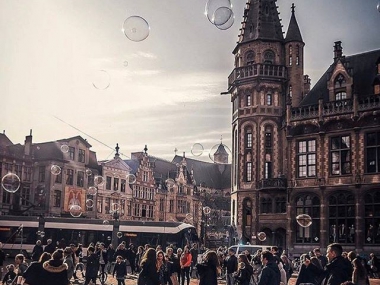
IAmsterdam
The overall marketing strategy of the city was presented by Amsterdam Marketing representatives with a specific focus on the use of social media and web tools for positioning Amsterdam as an attractive area for business and tourism but also for locals.
The social media strategy for city promotion and the campaigning action at the occasion of events and initiatives for different targets was presented together with the organizational model and the connections with the overall communication strategy. The use of apps and bots as well as the choice of key messages for the promotion of Amsterdam and its cultural and touristic heritage were explained with concrete examples and an analysis of success and failures of the strategies adopted, with concrete tips to social media managers and developers.
Smart Urban Development
The Amsterdam study visit focusing on urban development and digital policies was hosted by Amsterdam Smart City, and organisation that brings together a variety of private and public stakeholders, in order to create an innovation ecosystem in the Amsterdam region. The meeting
was organised to help us meet various actors within this ecosystem whose work focuses on digital communication to enable the cooperation of different stakeholders. Cornelia Dinca from Amsterdam Smart City introduced the organisation that operates a matchmaking platform to give
more visibility to civic innovation and to make demand and supply meet each other in order to bring together start ups and smart citizens. Amsterdam Smart City is a programme within the Amsterdam Economic Board, a partnership of 11 partners from governments, corporations and knowledge institutions. The Amsterdam Smart City platform, where everyone can upload their projects and initiatives, is financed by its corporate members and functions as an innovation ecosystem. The platform helps projects in various domains, with digital connectivity as a
transversal theme. Amsterdam Smart City had a key role for the city’s Innovation Capital Award in 2016, with the only application that was based on a variety of stakeholders.
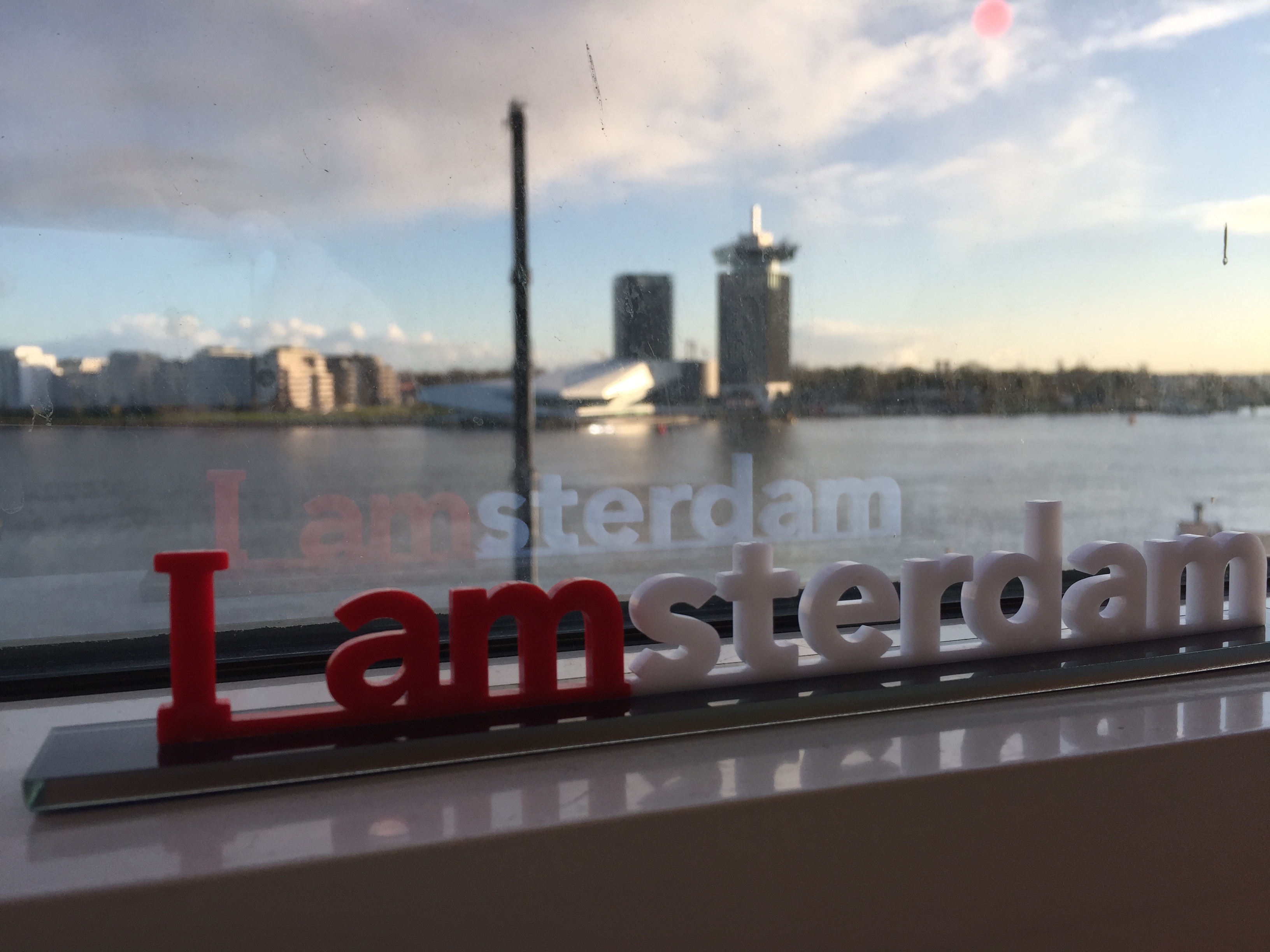 | 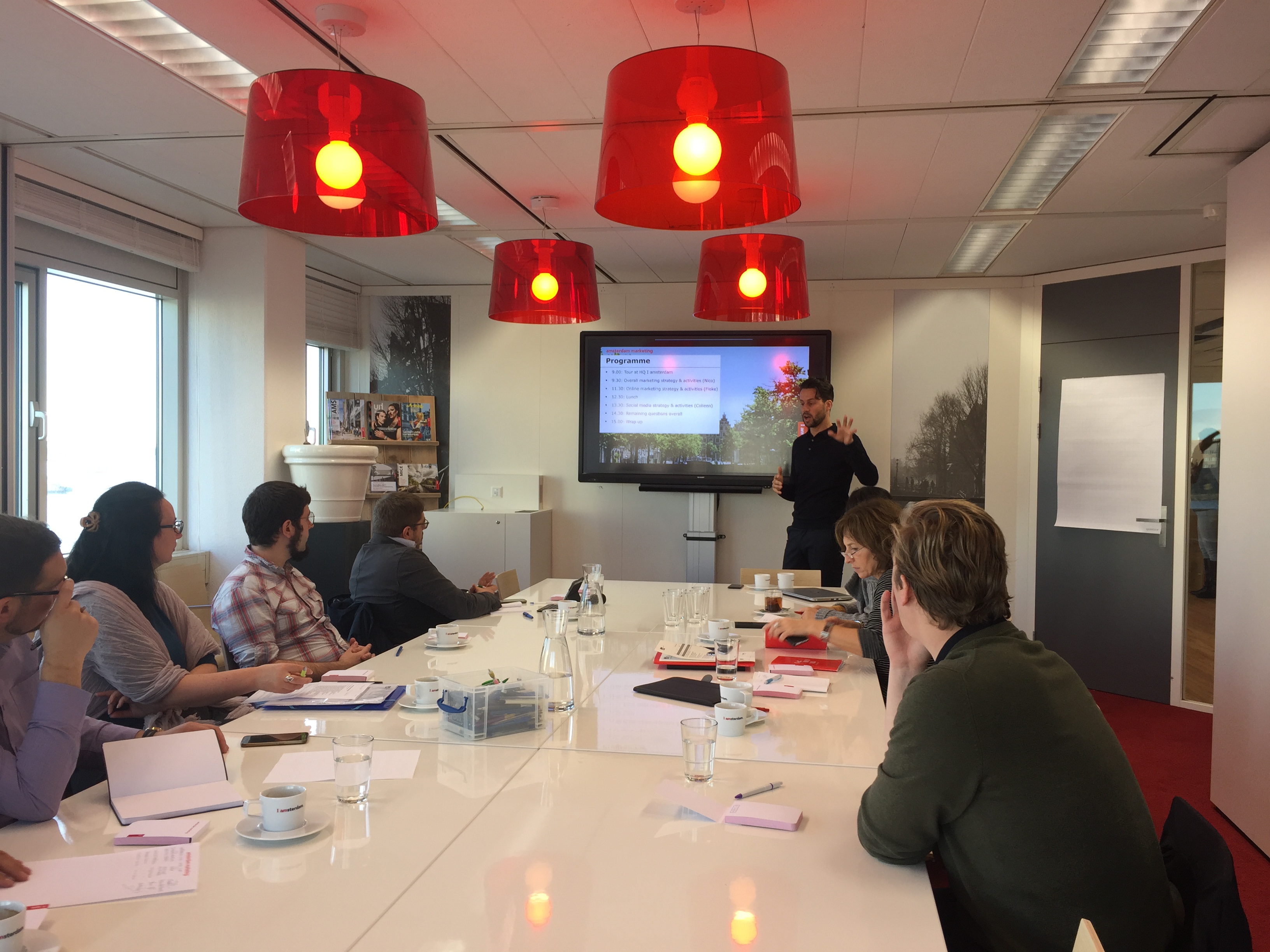 |
Yvonne Jansen-Dings presented the Waag Institute, an innovation lab and knowledge institute that promotes open government, distributed economic systems and data literacy. In its advocacy work, the Institute helps communities create and own their datasets and creates open platforms for citizens to provide feedback on governance and policy issues. In its work with local governments, it produces tools to visualise data for administrations and connects people with IT skills with government officials, thus increasing the digital capacities of public administrations. Tourism was been raised in several presentations during the meeting. Rick Bleumink from the Amsterdam Municipality’s Housing Department explained the municipality’s enforcement strategy against illegal stays in short rental apartments through regulation and scraping data from various platforms to gain a better understanding of the impact of these platforms on housing. Bleumink highlighted the fact that Amsterdam was the first municipality to make an agreement with Airbnb to limit their activities to 60 days per year for each available apartment.
Sito Veracruz and Alessandro Latella from Fairbnb, a spinoff of the Waag Institute presented their work to create a fair vacation rental platform based on a commons-oriented sharing system that helps channeling tourism revenues into local economies and community values. Another key theme of the day was the interaction between digital tools and platforms and urban development. Saskia Beer from Transform City explained how she developed a platform to bring together tenants, owners and municipal officers in a South Amsterdam neighbourhood struggling with high vacancy rates of office buildings. Wouter Meys from the Hogeschool van Amsterdam’s Citizen Data Lab presented the Lab’s work in organising participatory mapping and sensing exercises where citizens are empowered to produce their own datasets that can reveal important urban phenomena. Martijn de Waal from the Play and Civic Media programme of the Amsterdam University of Applied Sciences introduced the university’s research on how digital media creates an additional layer to the city and how digital tools can help creating games to bring stakeholders together and empower citizens for a more collaborative citymaking. Achilleas Psyllidis from the AMS Institute’s Social Glass project explained how can the combination of user-contributed and public datasets help local governments understand mobility and movements in the city and support decision-making concerning the organisation and management of large events. To close the event, Harmen van Sprang from Share NL presented his organisation’s work in supporting the sharing and platform economy in Amsterdam and across the world through the international Sharing Cities Alliance.
Ghent Meeting
The first day of meeting started with a Keynote speech made by Eric Mannens, of the Ghent University and it focused on the importance of Data in our daily life.
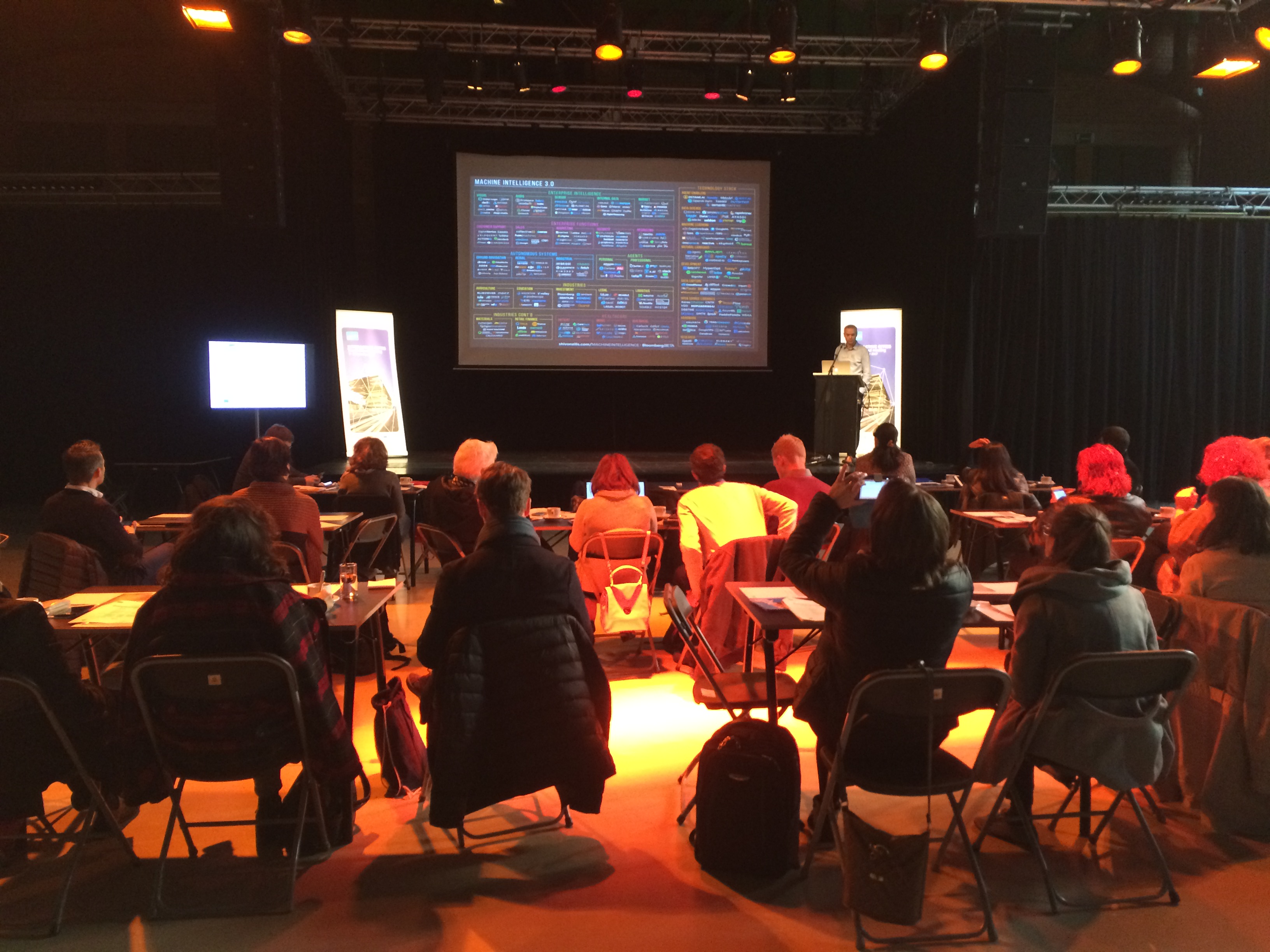 | 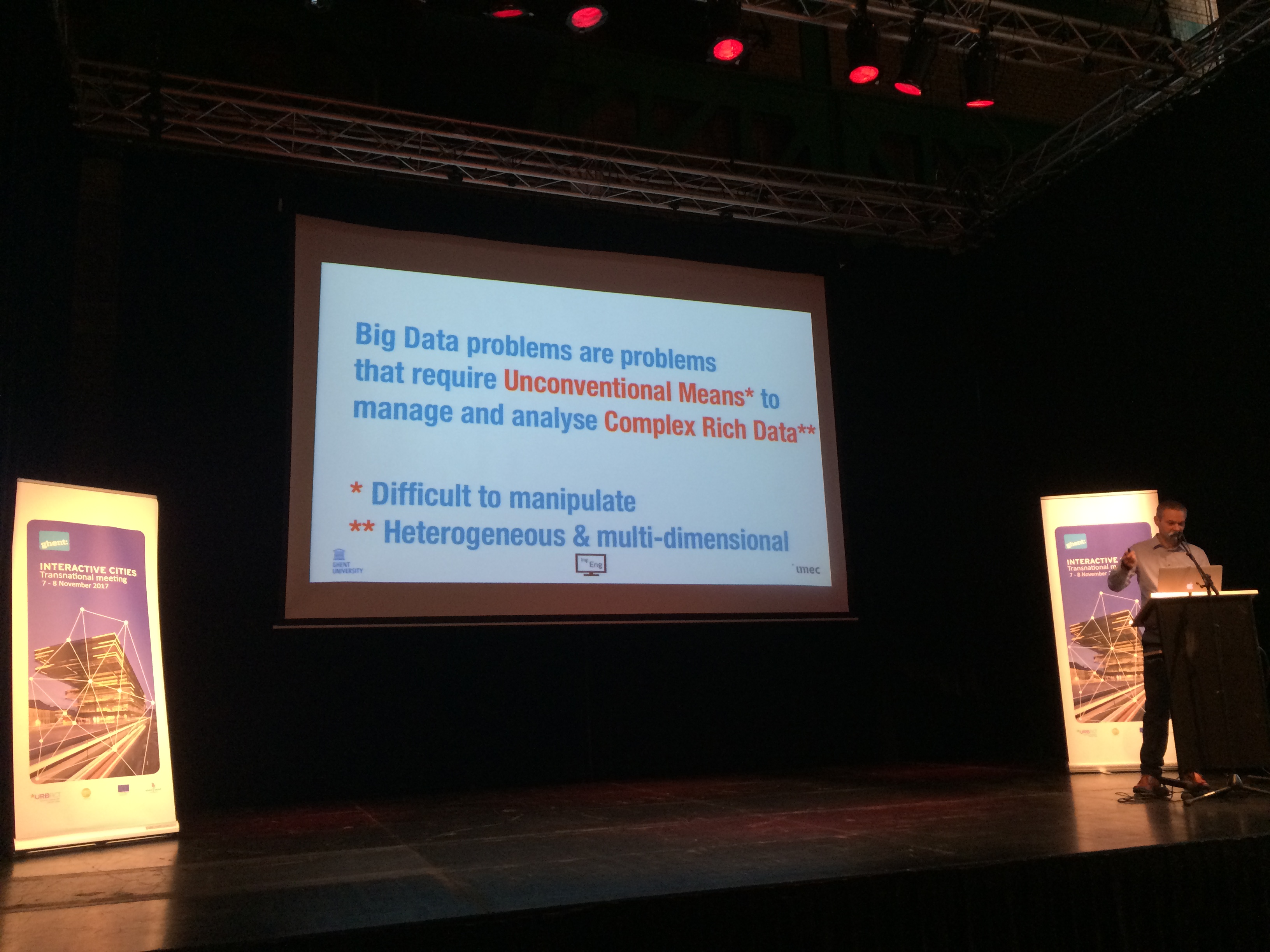 |
1. Metadata is more important than data (makes it easier and faster to handle data). The next step will be to look into the provenance of metadata. We will have a new IoT internet.
2. You cannot underestimate the secondary use of data. Keep it, anyway it’s cheap.
• Jawbone monitored when people got up for earthquake
• US military wanted to know oil reserves of competitors companies. Trrough NASA pics recognition of oil tanks and availability of oil remaining.
• Duolingo. Guatemala guy sorted out Captcham ade a lot of money and decided to give back to his people to learn languages. The business model is that higher levels are translating books that are crowd-checked to improve quality.
3. Power of the people, machines learn quicker through people’s common input
4. Semantic intelligence: combining supervised + unsupervised
5. Human rights? We need to protect AI because it can be fooled
6. Economy: Since 2000 there is a mismatch between enterprise income and labor. Europe is not in the big internet players (US and East). Do we need a Sherman Act (like us turn last cent to break monopoly of rails and refinery). We should develop a new internet (User ME - being
developed with MIT, remember if you link to Facebook you give them all your data- not to the app developer)
7. Machines do some things better but people others (emotions, ethics). Machines are still not able to have common sense to generalise. Our brains are chaper, smaller and faster, for quite some time we will not be replaced from machines!
Group Workshop
During all the meeting the participants shared their ongoing work on the Integrated Action Plans and started discussing about the main challenges they were facing in terms of stakeholder engagement, defining an ambitious yet useful plan and finally how to access resources for the implementation.
Below we provide you a short resume of the topics of the discussions:
What are the main items present in an Integrated Action Plan?
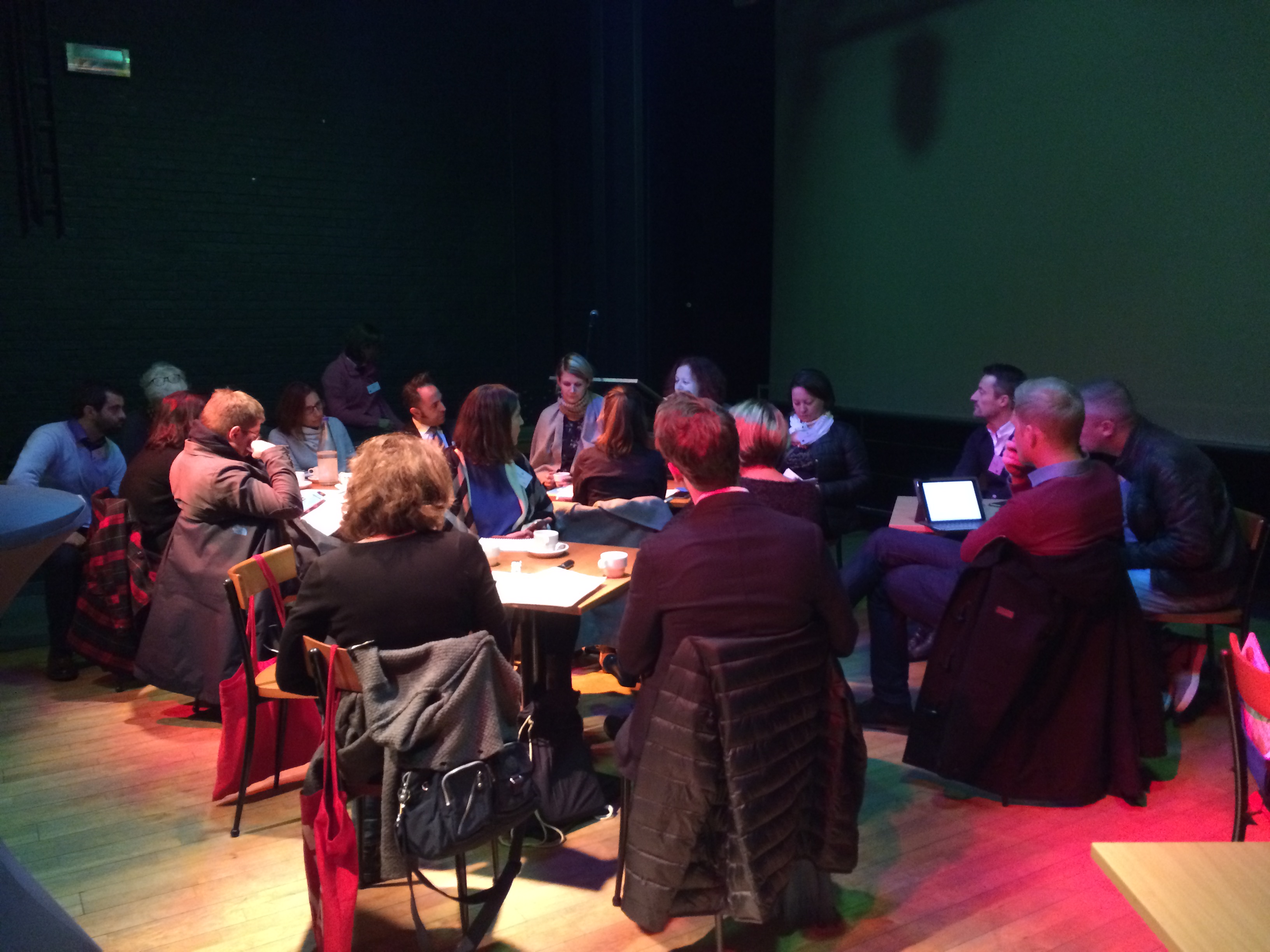 | 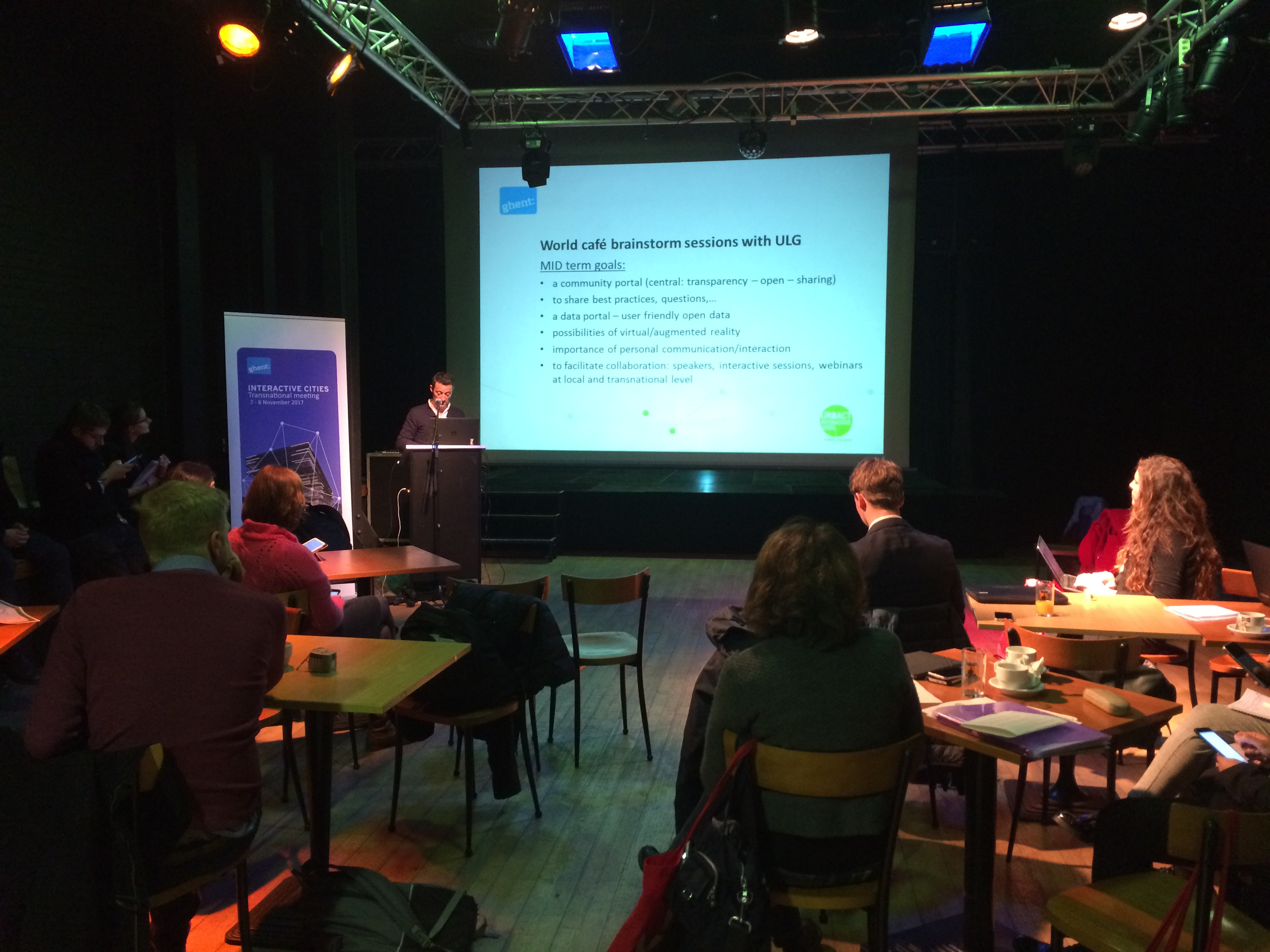 |
- How to involve target groups in the communication development
- How to get political backing for the IAP
- How to develop financial sustainability for the plan.
- The communication strategy
- How to integrate different communication channels
- How to create incentives for stakeholders (awards, contests)
- Definition of the technological requirements
- What is the proposed governance structure (who is responsible for what, when, how)
- What resources (financial, skills) are available and which need to be found
- Next steps, timing and necessary resources.
During the Communication Session and the Steering Committee participants discussed about the next steps in administrative and communication issues.
The next Transnational meeting will take place from January 24 untile January 26 in Murcia.
Lead Partners and Experts
Submitted by fvirgilio on
